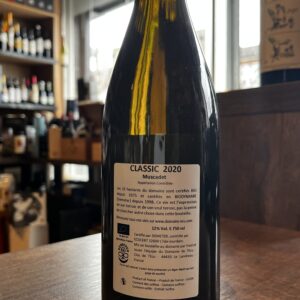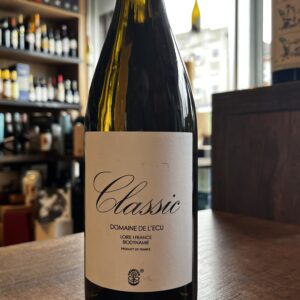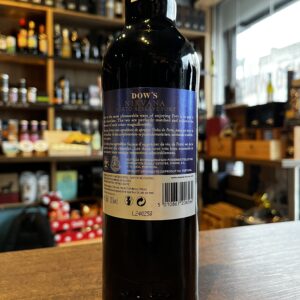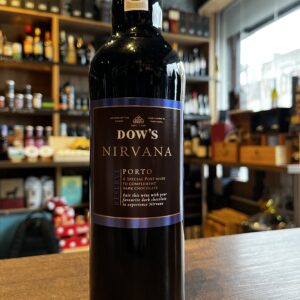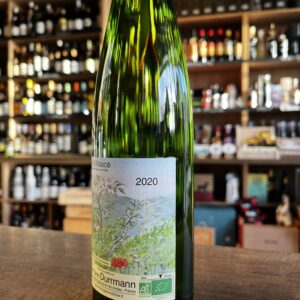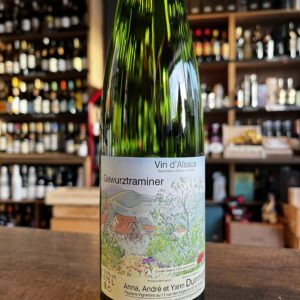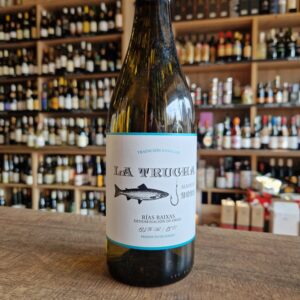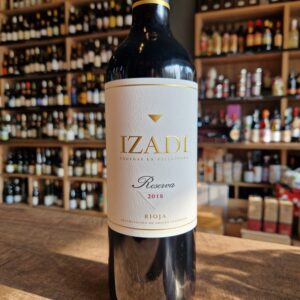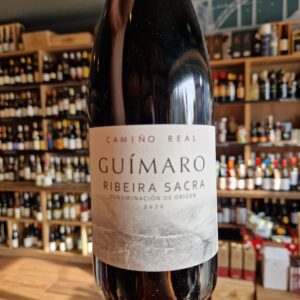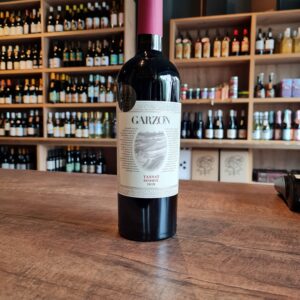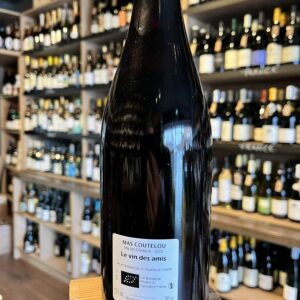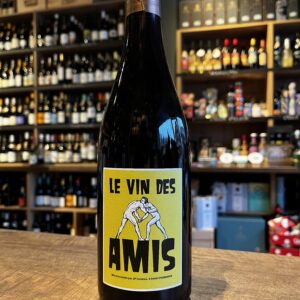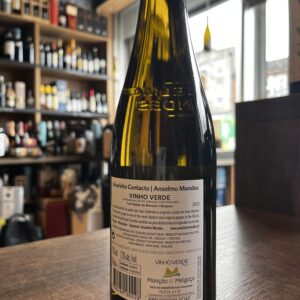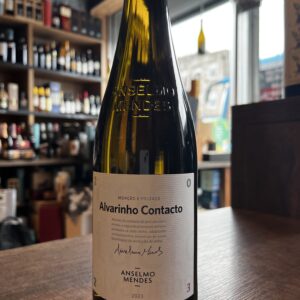-
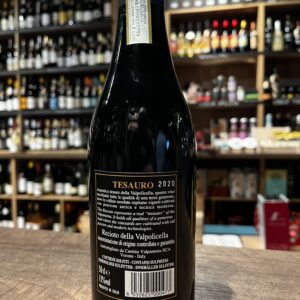
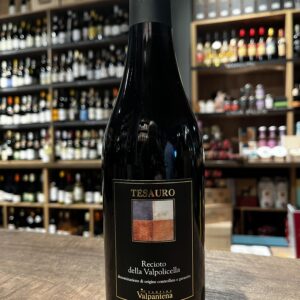 The Torre del Falasco wines are the standard bearers of this co-operative, situated in the Valpantena, northeast of Verona. Known as the ’valley of god’ to the ancient Greeks, this area is well-known for its high quality red wines, due partly to the soils but also because of the cool breeze that blows down the valley from the foothills of the Dolomites. Cantina Valpantena Tesauro Recioto della Valpolicella is the perfect dessert wine and pairs well with chocolate, cheese, and other sweet treats. With its unique blend of grapes and traditional winemaking techniques, this wine is sure to impress even the most discerning of wine lovers.
The Torre del Falasco wines are the standard bearers of this co-operative, situated in the Valpantena, northeast of Verona. Known as the ’valley of god’ to the ancient Greeks, this area is well-known for its high quality red wines, due partly to the soils but also because of the cool breeze that blows down the valley from the foothills of the Dolomites. Cantina Valpantena Tesauro Recioto della Valpolicella is the perfect dessert wine and pairs well with chocolate, cheese, and other sweet treats. With its unique blend of grapes and traditional winemaking techniques, this wine is sure to impress even the most discerning of wine lovers. -
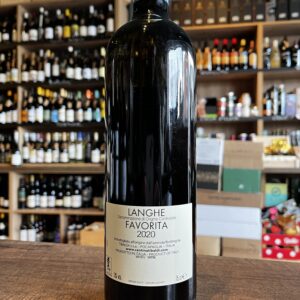
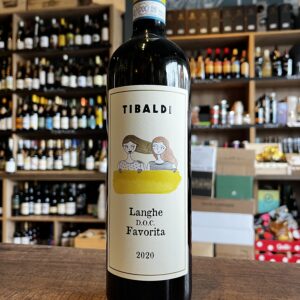 Normally I look for the inside story and drop it here. I reckon in this case its so personal that I let them tell their story... ''We are Monica and Daniela, two sisters born and raised breathing love for the winegrowing in the Roeroa colourful land, rich in biodiversity that fills us with new stimuli every day. We have inherited a passion for vines and grapes, by our father Stefano and grandfather Tunin, and so we decided to start winemaking and bet on Pocapaglia. We manage the entire wine production process: from the vineyard, where our father's help is still fundamental, to the cellar, without neglecting marketing. We both believe in commitment and tenacity, two essential ingredients to achieve the desired quality. Together we have fun, for us it is not just an occupation but it is a life choice that sees us immersed in our passion eight days a week!'' Life can be so simple and yet produce amazing and complex things... If you like Vermentino you will like this as it is its clone Pair it with someone you love
Normally I look for the inside story and drop it here. I reckon in this case its so personal that I let them tell their story... ''We are Monica and Daniela, two sisters born and raised breathing love for the winegrowing in the Roeroa colourful land, rich in biodiversity that fills us with new stimuli every day. We have inherited a passion for vines and grapes, by our father Stefano and grandfather Tunin, and so we decided to start winemaking and bet on Pocapaglia. We manage the entire wine production process: from the vineyard, where our father's help is still fundamental, to the cellar, without neglecting marketing. We both believe in commitment and tenacity, two essential ingredients to achieve the desired quality. Together we have fun, for us it is not just an occupation but it is a life choice that sees us immersed in our passion eight days a week!'' Life can be so simple and yet produce amazing and complex things... If you like Vermentino you will like this as it is its clone Pair it with someone you love -
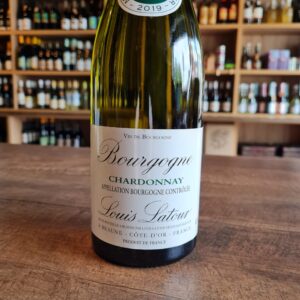 The result of a long history, Burgundy and its wines are known worldwide. Chardonnay being a native grape to the area, perfectly matches the terroir of Burgundy: poor soils or calcareous marl, perfect exposure but a temperate climate. As a result the sugar content can reach a high level whilst maintaining a balance of fruit and acidity. Thanks to a careful selection, Maison Louis Latour is able to produce a rich and expressive Chardonnay. This wine is intense, powerful and fruity. A complexe wine with a nice aromatic persistence. Food Pairing, aperitif - shellfish - charcuterie - grilled fish
The result of a long history, Burgundy and its wines are known worldwide. Chardonnay being a native grape to the area, perfectly matches the terroir of Burgundy: poor soils or calcareous marl, perfect exposure but a temperate climate. As a result the sugar content can reach a high level whilst maintaining a balance of fruit and acidity. Thanks to a careful selection, Maison Louis Latour is able to produce a rich and expressive Chardonnay. This wine is intense, powerful and fruity. A complexe wine with a nice aromatic persistence. Food Pairing, aperitif - shellfish - charcuterie - grilled fish -
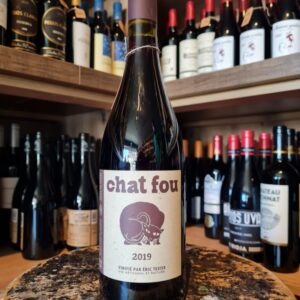 If you were ever sceptical about Organic wines, you have to give this one a try! This wine is Artisanal, Organic, Biodynamic, unfined and unfiltered. All with the aim to do as little intervention as possible and to let the Terroir speak for itself. Eric Texier Chat Fou natural red wine is a coupage of Grenache Tinta, Clairette and Marsanne, from the well known region of Côtes du Rhône.Eric Texier is a vigneron from Brézème, a municipality in the northern area of the Rhone Valley. Texier worked in nuclear engineering but switched to the world of wine in the early 1990s. He practices minimal viticulture and oenology, and attaches special importance to the management of the soils of his vineyards. The result is this superb wine a true example of natural wines and at the forefront of this movement. Eric is not a follower of fashion and speaks vehemently against those who label themselves as natural when it is used as a marketing tool rather than a true desire to understand the terroir. He believes that in most cases all natural wines taste the same! He vinifies all his wines in the same way, using as little intervention as possible to allow the terroir of his different parcels to do the talking. Hope it catches your eye!
If you were ever sceptical about Organic wines, you have to give this one a try! This wine is Artisanal, Organic, Biodynamic, unfined and unfiltered. All with the aim to do as little intervention as possible and to let the Terroir speak for itself. Eric Texier Chat Fou natural red wine is a coupage of Grenache Tinta, Clairette and Marsanne, from the well known region of Côtes du Rhône.Eric Texier is a vigneron from Brézème, a municipality in the northern area of the Rhone Valley. Texier worked in nuclear engineering but switched to the world of wine in the early 1990s. He practices minimal viticulture and oenology, and attaches special importance to the management of the soils of his vineyards. The result is this superb wine a true example of natural wines and at the forefront of this movement. Eric is not a follower of fashion and speaks vehemently against those who label themselves as natural when it is used as a marketing tool rather than a true desire to understand the terroir. He believes that in most cases all natural wines taste the same! He vinifies all his wines in the same way, using as little intervention as possible to allow the terroir of his different parcels to do the talking. Hope it catches your eye! -
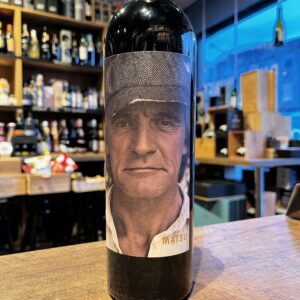 “El Recio translates as 'tough guy' and it's a clue to the style of this Tempranillo from Spain's Toro region. Made from old vines, cultivated biodynamically, the wine matures in new French oak for 14 months, giving it polish and opulence. Firm, sweet black fruit, almost fruit cake in character, with earthy and coffee notes. The guy in the picture must be a meat-eater – this wine is crying out for a juicy steak
“El Recio translates as 'tough guy' and it's a clue to the style of this Tempranillo from Spain's Toro region. Made from old vines, cultivated biodynamically, the wine matures in new French oak for 14 months, giving it polish and opulence. Firm, sweet black fruit, almost fruit cake in character, with earthy and coffee notes. The guy in the picture must be a meat-eater – this wine is crying out for a juicy steak -
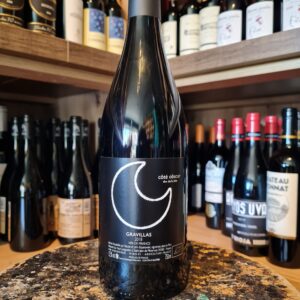 A typical blend of almost century-old Carignan and Cabernet Sauvignon. The vineyard is treated with respect, neither chemicals nor weed killers are tolerated, in order to preserve the biodiversity of the surrounding flora and fauna. The favourable terroir of white limestone pebbles, combined with low yields, gives mineral wines, with a beautiful freshness , and concentrated fruit. Manual harvest in 15 kg crates with severe sorting in the vineyard. 3 weeks pellicular maceration which brings a lot of fullness. We will find the aromatic complexity of Carignan with some notes of pepper and a tannic structure provided by the Cabernet. the tannins are nevertheless very fine. Pair this Coté Obscur wine with beef entrecote, duck skewer and some soft cheese. A real treat! Would recommend to decant this for at least an hour.
A typical blend of almost century-old Carignan and Cabernet Sauvignon. The vineyard is treated with respect, neither chemicals nor weed killers are tolerated, in order to preserve the biodiversity of the surrounding flora and fauna. The favourable terroir of white limestone pebbles, combined with low yields, gives mineral wines, with a beautiful freshness , and concentrated fruit. Manual harvest in 15 kg crates with severe sorting in the vineyard. 3 weeks pellicular maceration which brings a lot of fullness. We will find the aromatic complexity of Carignan with some notes of pepper and a tannic structure provided by the Cabernet. the tannins are nevertheless very fine. Pair this Coté Obscur wine with beef entrecote, duck skewer and some soft cheese. A real treat! Would recommend to decant this for at least an hour. -
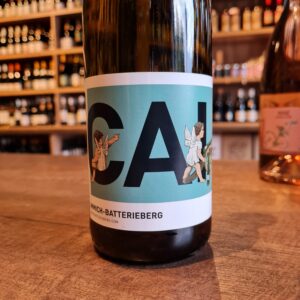 Immich-Batterieberg is one of the oldest wineries in the Mosel; originally founded by a Carolingian monastery, it can be traced back to the year 911. In 1495, the Immich family purchased the property, producing traditional dry and off-dry wines under their name for almost 500 years. The historical estate was then acquired in 2009 by Gernot Kollmann, one of Germany's finest up and comers. He is no stranger to the Mosel, having worked on many prestigious wineries in the region – Dr. Loosen, Weingut Van Volxem and Knebel. Since taking over, he has chosen to retain the long-standing tradition of the winery. The wines are once again produced in a dry or off-dry style, with sugar levels depending on each site, each vintage.80-percent of the vines are un-grafted and over 60 years old, and everything is worked organically. Intervention during vinification is also forbidden. A crisp, crunchy, keenly balanced, TOTALLY DRY trocken style Riesling.
Immich-Batterieberg is one of the oldest wineries in the Mosel; originally founded by a Carolingian monastery, it can be traced back to the year 911. In 1495, the Immich family purchased the property, producing traditional dry and off-dry wines under their name for almost 500 years. The historical estate was then acquired in 2009 by Gernot Kollmann, one of Germany's finest up and comers. He is no stranger to the Mosel, having worked on many prestigious wineries in the region – Dr. Loosen, Weingut Van Volxem and Knebel. Since taking over, he has chosen to retain the long-standing tradition of the winery. The wines are once again produced in a dry or off-dry style, with sugar levels depending on each site, each vintage.80-percent of the vines are un-grafted and over 60 years old, and everything is worked organically. Intervention during vinification is also forbidden. A crisp, crunchy, keenly balanced, TOTALLY DRY trocken style Riesling. -
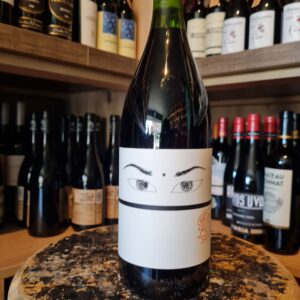 The Nat’Cool project is an innovative concept initiated by Niepoort, in which various producers came together to create light and easy-to-drink wines. This is the original Nat’Cool wine, from the Bairrada region where they are showcasing the elegant side of the Baga grape variety. Hands off wine making, Carbonic Maceration, soft, light expression of Baga. Baga is a touch grape which is very high in tannin and generally needs time to mature and express its delightful floral aromas and fruit character. However, here in the Bairrada with 80-100 year old vines and hands off wine making including carbonic maceration (which generally extracts less tannin), the astringent elements of the Baga grape are tamed and the resulting wine is pure juicy, fresh red with delicious wild berries, floral notes and light body. This wine is great fun, on opening there is a note of spritz but this vanishes quickly, I reckon it is just the wine's youthful spirit leaping from the bottle on its re-acquaintance with oxygen. What follows is very easy, juicy red which can be enjoyed chilled in the summer with a BBQ or at room temp in the autumn with some field mushrooms. The litre bottle and 12.5% abv is fantastic as between two, you have enough wine and not enough booze to make you suffer for it. A great addition to Niepoort portfolio, the wines go from strength to strength.
The Nat’Cool project is an innovative concept initiated by Niepoort, in which various producers came together to create light and easy-to-drink wines. This is the original Nat’Cool wine, from the Bairrada region where they are showcasing the elegant side of the Baga grape variety. Hands off wine making, Carbonic Maceration, soft, light expression of Baga. Baga is a touch grape which is very high in tannin and generally needs time to mature and express its delightful floral aromas and fruit character. However, here in the Bairrada with 80-100 year old vines and hands off wine making including carbonic maceration (which generally extracts less tannin), the astringent elements of the Baga grape are tamed and the resulting wine is pure juicy, fresh red with delicious wild berries, floral notes and light body. This wine is great fun, on opening there is a note of spritz but this vanishes quickly, I reckon it is just the wine's youthful spirit leaping from the bottle on its re-acquaintance with oxygen. What follows is very easy, juicy red which can be enjoyed chilled in the summer with a BBQ or at room temp in the autumn with some field mushrooms. The litre bottle and 12.5% abv is fantastic as between two, you have enough wine and not enough booze to make you suffer for it. A great addition to Niepoort portfolio, the wines go from strength to strength. -
Out of stock
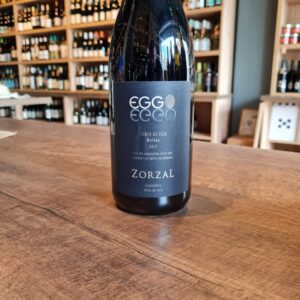 Zorzal, the Argentinian wine brand, was established in 2008, to reflect the immense wine potential of the Gualtallary region to the entire world. Ever since its inception, the group has been working hard so that the wines created here are true representations of the unique natural extravaganza of the Gualtallary region. Located in Tupungato towards the north of the Uco Valley in the Mendoza Province, this region is known for its high-altitude vineyards. Here, the vineyards are planted at a height of around 1200 to 1600m above sea level, which makes them the best place to produce terroir wines, the speciality of the Zorzal label. The Zorzal winery is set up in such a way that it uses sophisticated technology to ensure that the grapes are processed naturally with minimal use of machinery. The winery is constructed on four levels, to allow for natural transportation of the grapes with the help of gravity, so that the dependence on pumps would be reduced to a considerable extent. The use of roll fermenters, cement eggs and other advanced machinery for the grinding, fermenting and guarding processing ensure that the flavor and intensity of the fruits are retained even when the wines are bottled. The temperature-controlled French oak barrels, foudres and cement eggs used in the winery, help to keep the balance, purity, life and minerality of the wines intact. The Eggo line of wines is the modern range of wines that use cement eggs for fermentation and ageing. The conceptual range of wines aren’t limited by the Gualtallary region and are created by passionate winemakers.
Zorzal, the Argentinian wine brand, was established in 2008, to reflect the immense wine potential of the Gualtallary region to the entire world. Ever since its inception, the group has been working hard so that the wines created here are true representations of the unique natural extravaganza of the Gualtallary region. Located in Tupungato towards the north of the Uco Valley in the Mendoza Province, this region is known for its high-altitude vineyards. Here, the vineyards are planted at a height of around 1200 to 1600m above sea level, which makes them the best place to produce terroir wines, the speciality of the Zorzal label. The Zorzal winery is set up in such a way that it uses sophisticated technology to ensure that the grapes are processed naturally with minimal use of machinery. The winery is constructed on four levels, to allow for natural transportation of the grapes with the help of gravity, so that the dependence on pumps would be reduced to a considerable extent. The use of roll fermenters, cement eggs and other advanced machinery for the grinding, fermenting and guarding processing ensure that the flavor and intensity of the fruits are retained even when the wines are bottled. The temperature-controlled French oak barrels, foudres and cement eggs used in the winery, help to keep the balance, purity, life and minerality of the wines intact. The Eggo line of wines is the modern range of wines that use cement eggs for fermentation and ageing. The conceptual range of wines aren’t limited by the Gualtallary region and are created by passionate winemakers. -
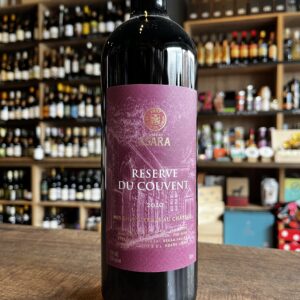 Reserve Du Couvent is the backbone of the Château Ksara range, a ready-to-drink, medium to full-bodied wine, which owes its inspiration to the wines of the Northern Rhone and Bordeaux. Pair it with Sirloin, Lamb and medium strong cheeses. Ksara estate, named so because it was the site of a ksar, or fortress, at the time of the Crusades. The property situated in the heart of the Bekaa Valley, near Baalbeck, was acquired by the Jesuit Fathers in 1857 when it was already famed as a vineyard and they perpetuated the tradition of winemaking. No one really knows for certain when wine was first made in Lebanon, the Phoenician ancestors of today's Lebanese were certainly among the earliest winemakers. Later, in the Greco-Roman era, a wine cult flourished, as the ruins of the Temple of Bacchus at Baalbeck in Lebanon's Bekaa Valley bear eloquent witness. Ksara's natural wine cellar was a grotto discovered by the Romans who consolidated part of the vault and dug several narrow tunnels from the cave into the surrounding chalk. These tunnels were enlarged to their present size during World War I when the Jesuit Fathers sought to alleviate famine in Lebanon by creating employment. One hundred men toiled with picks and shovels for four years to complete an underground network of tunnels stretching for almost two kilometres (about 2,000 yards).The temperature in the tunnels is ideal for wine, varying throughout the year from 11 to 13ºC. Ksara came into the hands of its present owners when the Jesuit Fathers decided to sell the estate in conformity with the directives of the Vatican II synod. Having grown significantly since its foundation, vineyards spread around the Chateau’s complex which includes the winery, a tasting room/restaurant, and Lebanon’s first astronomy/observation tour. Located in the heart of the Bekaa Valley at an average altitude of 1,000 meters, vines grow without pesticides or herbicides. The soil ranges from chalk, to clay and chalk, to clay and limestone, but it is always stony. A fantastic wine that kept its value humble and therefore on the right side of the price comparing to some of other wines found in the area. Enjoy this unique and great find!
Reserve Du Couvent is the backbone of the Château Ksara range, a ready-to-drink, medium to full-bodied wine, which owes its inspiration to the wines of the Northern Rhone and Bordeaux. Pair it with Sirloin, Lamb and medium strong cheeses. Ksara estate, named so because it was the site of a ksar, or fortress, at the time of the Crusades. The property situated in the heart of the Bekaa Valley, near Baalbeck, was acquired by the Jesuit Fathers in 1857 when it was already famed as a vineyard and they perpetuated the tradition of winemaking. No one really knows for certain when wine was first made in Lebanon, the Phoenician ancestors of today's Lebanese were certainly among the earliest winemakers. Later, in the Greco-Roman era, a wine cult flourished, as the ruins of the Temple of Bacchus at Baalbeck in Lebanon's Bekaa Valley bear eloquent witness. Ksara's natural wine cellar was a grotto discovered by the Romans who consolidated part of the vault and dug several narrow tunnels from the cave into the surrounding chalk. These tunnels were enlarged to their present size during World War I when the Jesuit Fathers sought to alleviate famine in Lebanon by creating employment. One hundred men toiled with picks and shovels for four years to complete an underground network of tunnels stretching for almost two kilometres (about 2,000 yards).The temperature in the tunnels is ideal for wine, varying throughout the year from 11 to 13ºC. Ksara came into the hands of its present owners when the Jesuit Fathers decided to sell the estate in conformity with the directives of the Vatican II synod. Having grown significantly since its foundation, vineyards spread around the Chateau’s complex which includes the winery, a tasting room/restaurant, and Lebanon’s first astronomy/observation tour. Located in the heart of the Bekaa Valley at an average altitude of 1,000 meters, vines grow without pesticides or herbicides. The soil ranges from chalk, to clay and chalk, to clay and limestone, but it is always stony. A fantastic wine that kept its value humble and therefore on the right side of the price comparing to some of other wines found in the area. Enjoy this unique and great find! -
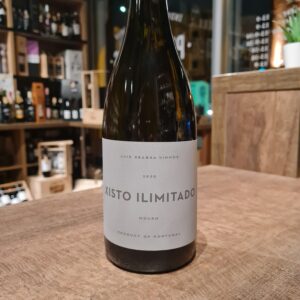 Another under the radar Portuguese White. This drop is now considered one of the new best contemporanean whites in Portugal. Produced by Luis Seabra, who worked for more than 10 years as an oenologist for Dirk Niepoort and finally started to follow his own path in 2012. The name he gives to his wines is indicative of his vision of wine: Xisto (Schist). He makes very pure wines that reflect their terroir. Luis Seabra sets a new standard in the Douro with his pure wines. Xisto Ilimitado, is a Portuguese analogue of the idea of a "village-level" Burgundy. A blend of six varieties planted in three sub-areas of the Douro, Ilimitado is a glimpse of the appellation's schist soil. Luis Seabra, has concentrated his production on the different soil types of the valley. Bright, concentrated and fresh, Xisto Ilimitado is an excellent introduction to the new Douro. Vineyards located in Cima Corgo. The vines are between 30 and 45 years old, planted in micaceous schist at an altitude of 500 to 600 m, and are a sub-region that experiences extreme highs and lows in terms of temperature, with one of the largest day-night temperature deltas in Portugal. As such, the fruit experiences an extended resting period. Annual rainfall of 400 mm typical of the region. Goes wonderfully with roasted poultry, white fish and seafood, and especially with the spiciest preparations
Another under the radar Portuguese White. This drop is now considered one of the new best contemporanean whites in Portugal. Produced by Luis Seabra, who worked for more than 10 years as an oenologist for Dirk Niepoort and finally started to follow his own path in 2012. The name he gives to his wines is indicative of his vision of wine: Xisto (Schist). He makes very pure wines that reflect their terroir. Luis Seabra sets a new standard in the Douro with his pure wines. Xisto Ilimitado, is a Portuguese analogue of the idea of a "village-level" Burgundy. A blend of six varieties planted in three sub-areas of the Douro, Ilimitado is a glimpse of the appellation's schist soil. Luis Seabra, has concentrated his production on the different soil types of the valley. Bright, concentrated and fresh, Xisto Ilimitado is an excellent introduction to the new Douro. Vineyards located in Cima Corgo. The vines are between 30 and 45 years old, planted in micaceous schist at an altitude of 500 to 600 m, and are a sub-region that experiences extreme highs and lows in terms of temperature, with one of the largest day-night temperature deltas in Portugal. As such, the fruit experiences an extended resting period. Annual rainfall of 400 mm typical of the region. Goes wonderfully with roasted poultry, white fish and seafood, and especially with the spiciest preparations -
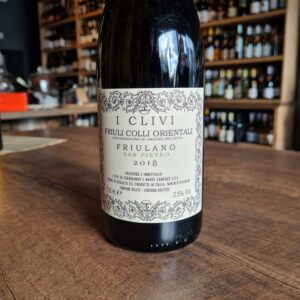 The wines of i Clivi are born in Friuli in between the Collio Goriziano and the eastern hills of Udine, named Colli Orientali, where, on sunny slopes – clivi meaning “slopes” – Altogether there is cultivated 12 hectares of certified organic vineyards planted with the indigenous varieties Ribolla, Friulano, Verduzzo, and Malvasia, whose only international grape is Merlot, a variety which found home in this area more than a century ago. Taking care of this important heritage of old vines, aged between 60 and 80 years, it is for Ferdinando and Mario Zanusso a reminder of the responsibility with which they guard and produce wine on this strip of land, giving the chance to express two distinct D.O.C. denominations, Collio, and Colli Orientali del Friuli, whose sensory difference is related exclusively to the microclimate. The low yields produced by these old vines give a natural concentration and complexity to the fruit they seek to transform naturally with spontaneous fermentation, maintaining the elegance and aromatic integrity through careful maturation in steel tanks for 50,000 bottles of varietal wines with great personality, distinguished grace, and delicacy.
The wines of i Clivi are born in Friuli in between the Collio Goriziano and the eastern hills of Udine, named Colli Orientali, where, on sunny slopes – clivi meaning “slopes” – Altogether there is cultivated 12 hectares of certified organic vineyards planted with the indigenous varieties Ribolla, Friulano, Verduzzo, and Malvasia, whose only international grape is Merlot, a variety which found home in this area more than a century ago. Taking care of this important heritage of old vines, aged between 60 and 80 years, it is for Ferdinando and Mario Zanusso a reminder of the responsibility with which they guard and produce wine on this strip of land, giving the chance to express two distinct D.O.C. denominations, Collio, and Colli Orientali del Friuli, whose sensory difference is related exclusively to the microclimate. The low yields produced by these old vines give a natural concentration and complexity to the fruit they seek to transform naturally with spontaneous fermentation, maintaining the elegance and aromatic integrity through careful maturation in steel tanks for 50,000 bottles of varietal wines with great personality, distinguished grace, and delicacy. -
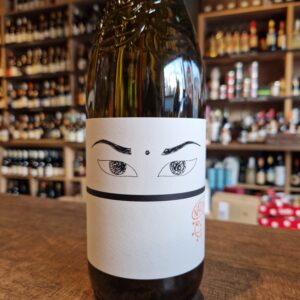 Nat Cool is naturally “cool and funky”. It represents an innovative concept initiated by Niepoort, in which various producers came together to create light, easy-to-drink wines. In the Vinho Verde region, we produced a wine typical of the region – a wine which references the “cloudy” wines of the past which were bottled with some residual sugar and fine lees, and therefore re-fermented in the bottle. Welcome to the Nat Cool world! This white wine was produced using a minimal intervention winemaking approach and is naturally turbid as it fermented in the bottle. It is intentionally not clarified and its aromas are reminiscent of the wines that used to be produced in the Vinho Verde region long ago. This is an intentionally uncomplicated wine: lightly shake the bottle before opening and enjoy with traditional Portuguese snacks!
Nat Cool is naturally “cool and funky”. It represents an innovative concept initiated by Niepoort, in which various producers came together to create light, easy-to-drink wines. In the Vinho Verde region, we produced a wine typical of the region – a wine which references the “cloudy” wines of the past which were bottled with some residual sugar and fine lees, and therefore re-fermented in the bottle. Welcome to the Nat Cool world! This white wine was produced using a minimal intervention winemaking approach and is naturally turbid as it fermented in the bottle. It is intentionally not clarified and its aromas are reminiscent of the wines that used to be produced in the Vinho Verde region long ago. This is an intentionally uncomplicated wine: lightly shake the bottle before opening and enjoy with traditional Portuguese snacks! -
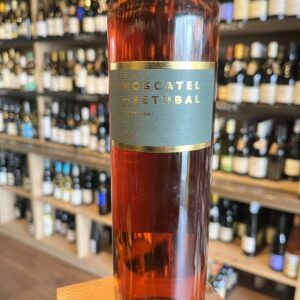
Casa Ermelinda Freitas
The warmth of the Portuguese sun is tempered at Casa Ermelinda thanks to the breezes blowing in from the Atlantic that lies close by. Located at Palmela on the peninsula of Setubal, close to the Sado estuary south of Lisbon, there are currently 440 hectares of many different kinds of vines across the domain, with grapes supplied locally from a further 500ha or so. Head of the company Leonor Freitas has worked tirelessly to make many improvements out in the vineyards and in the winery where modern equipment goes hand in hand with traditional values under the skilled guidance of winemaker Jaime Quendera. Casa Ermelinda Freitas has been run by a long line of dynamic women, celebrating its 100 year anniversary in 2020.
-
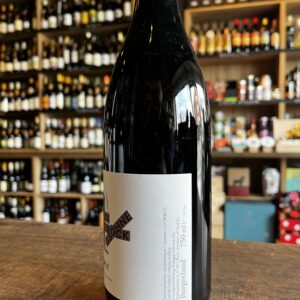
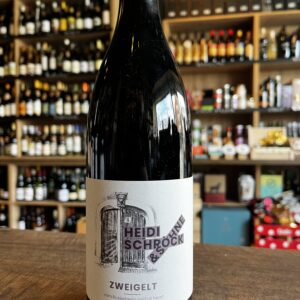 Heidi took over her family’s 10 hectare estate in 1983, in the famous village of Rust, Burgenland, just five miles from the Hungarian border. Her south-east-facing vineyards along the western banks of Lake Neusiedl form a semi-amphitheatre, providing considerably more sunlight hours compared to the rest of Austria. The soils here are sandy with clay, gravel, grey quartz and schist. Heidi sustainably cultivates the classic Austrian varieties, Zweigelt, Blaufränkisch and St Laurent, as well as pioneering the revival of traditional varieties, such as Furmint, better known today across the Hungarian border. Heidi, Georg and Johannes. One woman, two young men. Mother and sons. In an ancient winegrower´s estate in the center of the renowned Freistadt Rust, the vinophile trio produces some of the most sought after white, rosé, red and sweet wines made in Austria - principally from autochthonus varieties of the region. The shining stars of the company, Schröck sweet wines, have represented the house for many years. Liquid elegance dressed in gold. Heidi Schröck & Söhne. A small, fine established company with big, aspiring ideas. Open, inspired, passionate. And pretty delicious
Heidi took over her family’s 10 hectare estate in 1983, in the famous village of Rust, Burgenland, just five miles from the Hungarian border. Her south-east-facing vineyards along the western banks of Lake Neusiedl form a semi-amphitheatre, providing considerably more sunlight hours compared to the rest of Austria. The soils here are sandy with clay, gravel, grey quartz and schist. Heidi sustainably cultivates the classic Austrian varieties, Zweigelt, Blaufränkisch and St Laurent, as well as pioneering the revival of traditional varieties, such as Furmint, better known today across the Hungarian border. Heidi, Georg and Johannes. One woman, two young men. Mother and sons. In an ancient winegrower´s estate in the center of the renowned Freistadt Rust, the vinophile trio produces some of the most sought after white, rosé, red and sweet wines made in Austria - principally from autochthonus varieties of the region. The shining stars of the company, Schröck sweet wines, have represented the house for many years. Liquid elegance dressed in gold. Heidi Schröck & Söhne. A small, fine established company with big, aspiring ideas. Open, inspired, passionate. And pretty delicious


